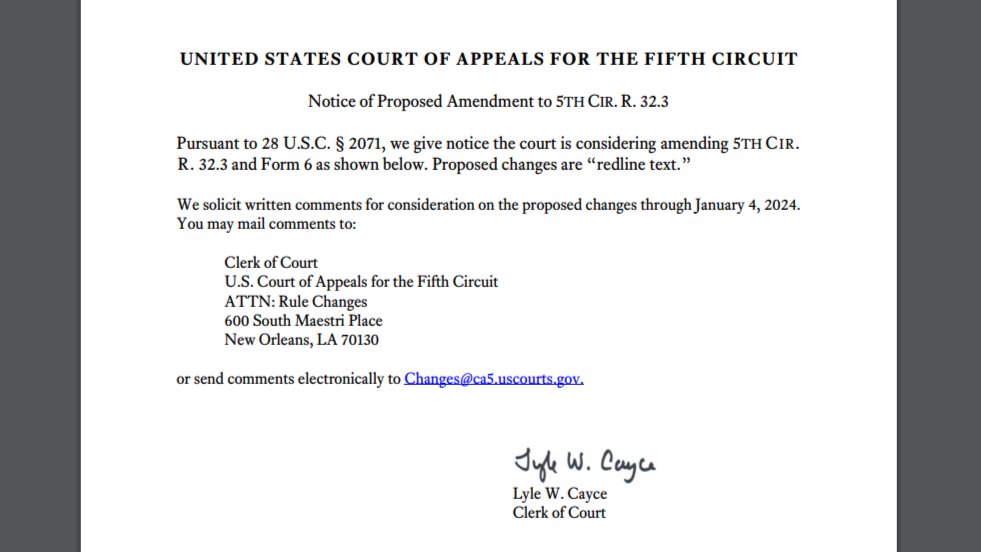In what it appears would be a first for a federal circuit court, the 5th U.S. Circuit Court of Appeals is considering adoption of a rule change that would require lawyers and unrepresented litigants to provide a certification regarding their use of artificial intelligence in preparing court filings.
Lawyers and other filers would be required to certify either that they had not used AI in drafting the document or that, if they did, “a human” had reviewed the document for accuracy.
While at least 14 federal trial courts have adopted AI-related rules of some sort, this appears to be the first instance of such a rule being considered by a federal appeals court.
Many courts were spurred to consider such rules in the wake of Mata v. Avianca, where two lawyers were sanctioned for filing a brief laden with bogus cases hallucinated by ChatGPT.
The court recently published the proposed change and is seeking written comments from the public through Jan. 4, 2024.
Specifically, the proposed would amend the circuit’s Rule 32.3 — which already requires attorneys to sign a certificate of compliance with the court’s filing guidelines as to typeface, page limits, etc. — to add:
“Additionally, counsel and unrepresented filers must further certify that no generative artificial intelligence program was used in drafting the document presented for filing, or to the extent such a program was used, all generated text, including all citations and legal analysis, has been reviewed for accuracy and approved by a human.”
A material misrepresentation with regard to the use of AI could lead to rejection of the document and sanctions imposed on the person who filed the document.
The proposal would also review the court’s Form 6, which is its certificate of compliance, to add a section with checkmarks for the pertinent AI certifications.
The full text of the rule change and new form, and instructions on filing comments, can be found here.
 Robert Ambrogi Blog
Robert Ambrogi Blog